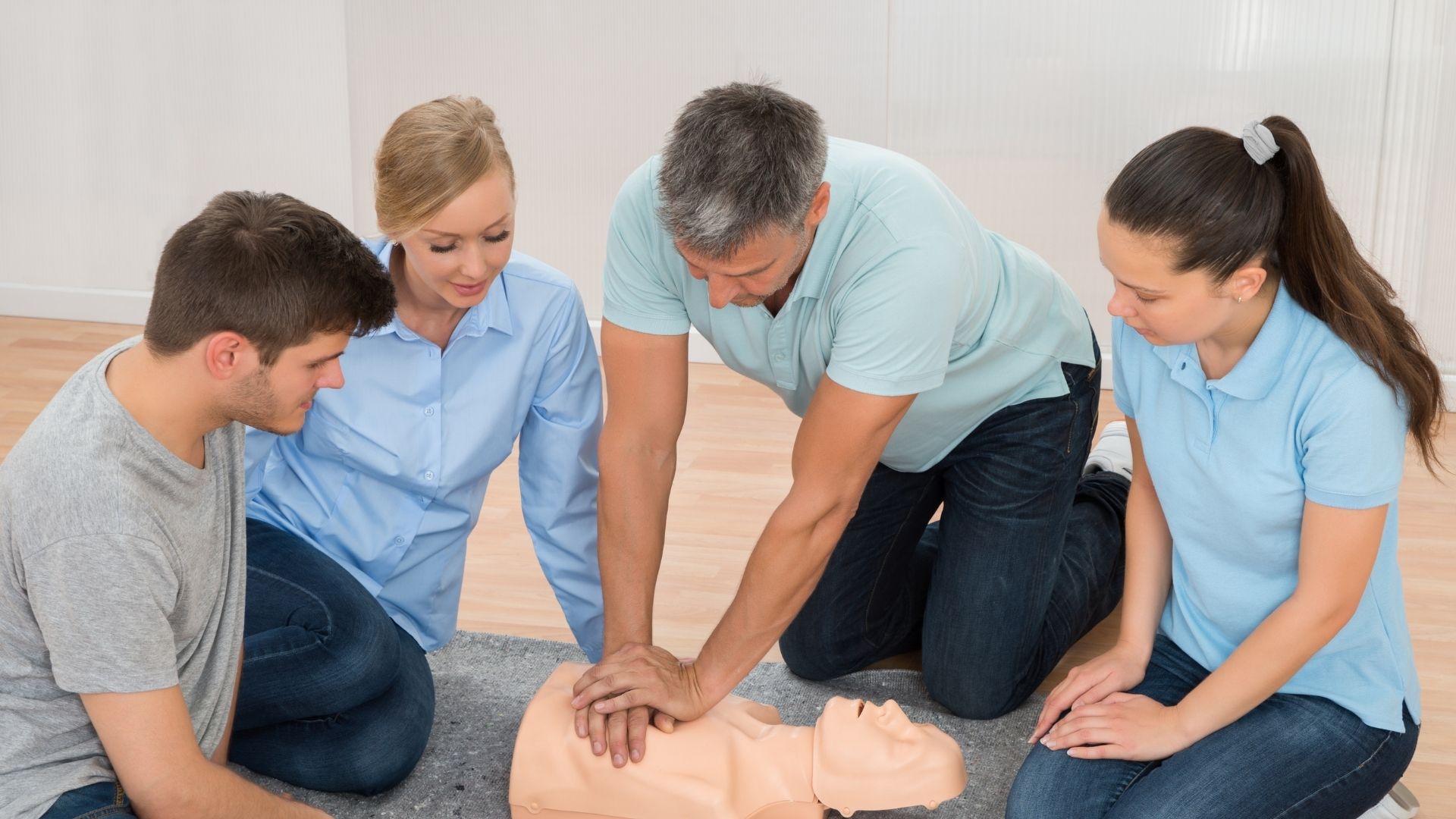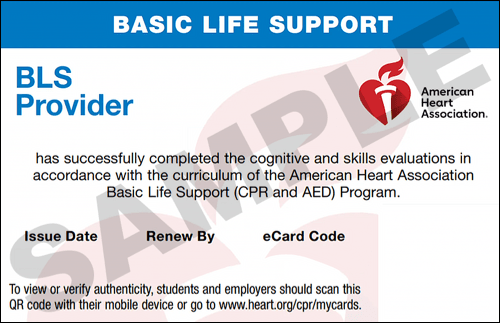How Long Does CPR Certification Last? Stay Prepared!

How Long Does CPR Certification Last? CPR certification typically lasts for two years. Obtaining CPR certification is an essential step for individuals who want to be prepared to respond to emergency situations and potentially save lives.
This certification ensures that individuals have the necessary skills and knowledge to perform CPR effectively and confidently. Whether you work in a healthcare setting or simply want to be prepared to help others in need, maintaining a valid CPR certification is crucial.
In addition to learning how to perform CPR, certification courses often cover topics such as first aid, AED usage, and choking relief techniques. By staying up-to-date with CPR certification, you can be ready to respond to emergencies and make a difference in someone’s life.
Introduction To Cpr Certification
CPR certification typically lasts for two years before requiring renewal. It is crucial to stay up-to-date with training to ensure readiness in emergency situations. Renewal courses help individuals maintain their life-saving skills and knowledge.
The Importance Of Cpr Skills
Mastering CPR skills can significantly increase the survival rates of individuals experiencing cardiac arrest. It empowers individuals to respond promptly and effectively in critical situations.
What Does Cpr Certification Entail?
CPR certification is crucial for being prepared to save lives during emergencies. It involves learning essential life-saving techniques and obtaining a certification that confirms your competence.
- Learning proper chest compression and rescue breathing techniques
- Understanding when and how to use an Automated External Defibrillator (AED)
- Gaining knowledge of first aid basics and emergency response procedures
Duration Of Cpr Certification
When it comes to CPR certification, many people wonder how long it lasts. The duration of CPR certification can vary depending on a few factors, so it’s important to understand the details. In this article, we’ll explore the standard validity period of CPR certification and the factors that can affect its lifespan.
Standard Validity Period
The standard validity period for CPR certification is typically two years. This means that after completing a CPR certification course, you will be certified for two years from the date of completion. After two years, you will need to renew your certification to remain current.
Factors Affecting Certification Lifespan
How Long Does CPR Certification Last? While the standard validity period for CPR certification is two years, there are some factors that can affect the lifespan of your certification. These factors include:
- Changes in CPR guidelines: If there are significant changes to CPR guidelines, you may need to re-certify earlier than the standard two-year period.
- Employer requirements: Some employers may require more frequent CPR training and certification, so it’s important to check with your employer to ensure you meet their requirements.
- Personal preference: Some individuals may choose to re-certify more frequently than every two years to ensure they are up-to-date on the latest CPR techniques and guidelines.
Regardless of the factors that may affect the lifespan of your CPR certification, it’s important to ensure you remain current and up-to-date on your training. CPR skills can deteriorate over time, so regular training and certification can help ensure you are prepared to respond in an emergency situation.
Renewing Your Cpr Certification
Ensure your CPR certification remains valid by renewing it before expiration, typically every 2 years. Stay prepared to respond effectively in emergencies.
Renewing Your CPR Certification When it comes to CPR certification, it’s crucial to stay up to date. CPR techniques and guidelines are constantly evolving, so it’s important to renew your certification regularly. But how do you know when it’s time for renewal? Here are some signs to look out for: H3: Signs it’s time for renewal 1. Expiration date approaching: CPR certifications typically last for two years.
As the expiration date approaches, it’s essential to start thinking about renewing your certification to ensure you are still equipped with the latest life-saving techniques. 2. Changes in guidelines: CPR guidelines are regularly updated to reflect the latest research and best practices. If there have been significant changes in CPR guidelines since you last got certified, it’s a clear sign that it’s time to renew your certification. 3. Career requirements: Many professions require CPR certification as a prerequisite for employment. If your job or career path mandates CPR certification and yours is about to expire, it’s crucial to renew it to maintain your eligibility and ensure workplace safety.
H3: Renewal process simplified Renewing your CPR certification doesn’t have to be a complicated process. With advancements in technology and online learning platforms, renewing your certification has become more convenient than ever. Here’s a simplified overview of the renewal process: 1. Choose a reputable CPR certification provider: Look for a recognized organization that offers CPR renewal courses. Ensure that the provider is accredited and follows the latest guidelines set by organizations like the American Heart Association or the Red Cross. 2. Complete an online renewal course:
Many CPR certification providers offer online renewal courses that you can take at your own pace. These courses cover the latest CPR techniques and guidelines, ensuring you have the most up-to-date knowledge and skills. 3. Take the renewal exam: Once you have completed the online course, you will typically need to pass a renewal exam to demonstrate your understanding of CPR techniques. The exam may consist of multiple-choice questions or practical scenarios to assess your knowledge and proficiency. 4. Receive your renewed certification: After successfully completing the renewal course and exam, you will receive a new CPR certification card or certificate. This renewed certification will be valid for the specified duration, usually another two years.
Renewing your CPR certification is a crucial step in ensuring that you can confidently respond to emergencies and provide life-saving care. By staying up to date with the latest techniques and guidelines, you can contribute to a safer and healthier community. Don’t wait until it’s too late – renew your CPR certification and be prepared to make a difference when it matters most.

Credit: www.cprcertificationsanantonio.com
Why Certifications Expire
CPR certifications expire to ensure that individuals remain up-to-date with the latest techniques and guidelines. The duration of a CPR certification varies, typically lasting for 2 years, after which a renewal course is required to maintain proficiency in life-saving skills.
CPR certification is a critical skill that can save someone’s life in an emergency. However, the certifications for CPR don’t last forever. CPR certifications expire because the guidelines and techniques for CPR can change over time, and it’s essential to stay up-to-date with the latest guidelines.
Keeping Skills Up-to-date
It’s crucial to keep your CPR skills up-to-date, even after you’ve received certification. CPR is a skill that requires practice to remain proficient, and it’s easy to forget the steps if you don’t use them regularly. To maintain your skills, you should consider taking a refresher course every two years or as recommended by the American Heart Association. This will ensure that you’re up-to-date with the latest CPR techniques and guidelines, and you’re prepared to respond to an emergency situation.
Changes In Cpr Guidelines
CPR guidelines can change over time, and it’s essential to stay up-to-date with the latest techniques. For example, the American Heart Association updates its CPR guidelines every five years to reflect new research and best practices. These updates can include changes in the number of compressions and breaths, the depth of compressions, and the use of AEDs. By staying current with the latest guidelines, you can provide the best possible care to someone in need.
In conclusion, CPR certification does expire, but for a good reason. It’s important to keep your skills up-to-date, and stay current with the latest guidelines to ensure you’re prepared to respond to an emergency situation. By taking a refresher course every two years or as recommended by the American Heart Association, you can maintain your CPR certification and provide the best possible care to someone in need.
Online Vs. In-person Certification
When it comes to CPR certification, individuals can choose between online and in-person training. Both methods have their own advantages and limitations, and it’s important to understand the differences between them in order to make an informed decision.
| Online Certification | In-Person Certification | |
|---|---|---|
| Validity | 1-2 years | 1-2 years |
| Convenience | Can be completed at own pace | Interactive learning experience |
| Hands-on Practice | Limited hands-on practice | Extensive hands-on practice |
| Interactive Feedback | Limited instructor interaction | Immediate instructor feedback |
| Cost | Potentially lower cost | Higher cost due to facility and instructor fees |
Online Certification:
- Convenient, self-paced learning
- Potentially lower cost
- Limited hands-on practice
- Limited instructor interaction
In-Person Certification:
- Interactive learning experience
- Extensive hands-on practice
- Immediate instructor feedback
- Higher cost due to facility and instructor fees
Both online and in-person CPR certifications have their own set of advantages and limitations. Understanding the differences between the two modes can help individuals choose the method that best suits their learning style and schedule.
Staying Prepared Between Renewals
Once you have obtained your CPR certification, it is important to stay prepared and maintain your skills until your next renewal. By practicing regularly and utilizing available resources, you can ensure that you are always ready to respond in case of an emergency. Let’s explore some key strategies for staying prepared between renewals.
Practice Makes Perfect
Regular practice is essential to maintain your CPR skills and confidence. To keep your skills sharp, consider the following:
- Set aside time each week to practice CPR techniques
- Find a partner or join a local CPR training group to practice with
- Utilize online CPR training videos to review and reinforce your knowledge
- Simulate real-life scenarios to enhance your ability to respond quickly and effectively
Resources For Continuous Learning
Continuous learning is crucial in the field of CPR, as guidelines and techniques may evolve over time. Take advantage of the following resources to stay updated:
| Resource | Description |
|---|---|
| Official CPR websites | Regularly visit reputable CPR websites for the latest guidelines, updates, and resources |
| CPR training courses | Consider taking advanced CPR courses to expand your knowledge and skills |
| Medical journals and publications | Stay informed by reading articles and research papers related to CPR and emergency response |
By utilizing these resources, you can ensure that you are up-to-date with the latest techniques and best practices in CPR.
Remember, CPR certification is not a one-time achievement. It requires continuous effort and dedication to stay prepared and provide effective assistance during critical situations. By practicing regularly and staying informed, you can make a significant difference in saving lives.
Real-life Stories: The Value Of Readiness
Lifesaving Moments
One day, a woman collapsed in a grocery store. A CPR-certified individual nearby sprang into action.
Performing CPR until the ambulance arrived, they saved her life.
Testimonies From Certified Individuals
A young boy saved his grandfather’s life with CPR skills he learned in school.
Having a current CPR certification can make a life-or-death difference.

Credit: www.cprcertificationokc.com
Faqs About Cpr Certification
CPR certification typically lasts for two years before requiring renewal. It is important to stay updated with the latest techniques and guidelines for effective emergency response. Regular renewal ensures that individuals are equipped to provide life-saving assistance in critical situations.
Common Concerns Addressed
Wondering about the duration of your CPR certification? Let’s clear up some common concerns.
Expert Advice For Potential Lifesavers
Here’s what you need to know about the validity of your CPR certification.
Frequently Asked Questions
How Long Does Cpr Certification Last?
CPR certification typically lasts for two years before it needs to be renewed. This ensures that individuals are up-to-date with the latest guidelines and techniques for providing life-saving assistance in emergency situations.
Can Cpr Certification Be Renewed?
Yes, CPR certification can be renewed by taking a refresher course, which ensures that individuals are knowledgeable about the latest CPR techniques and guidelines. Renewing certification is essential for maintaining preparedness to respond to emergencies effectively.
What Happens If Cpr Certification Expires?
If CPR certification expires, individuals may not be considered qualified to provide CPR in certain professional settings. It’s important to renew certification promptly to ensure that individuals are prepared and authorized to provide life-saving assistance when needed.
Conclusion
CPR certification typically lasts for two years. It’s crucial to stay updated and re-certify to maintain essential life-saving skills. Keeping your certification current ensures you are prepared to provide effective assistance in emergency situations. Stay informed about the latest guidelines and be ready to respond when needed.





